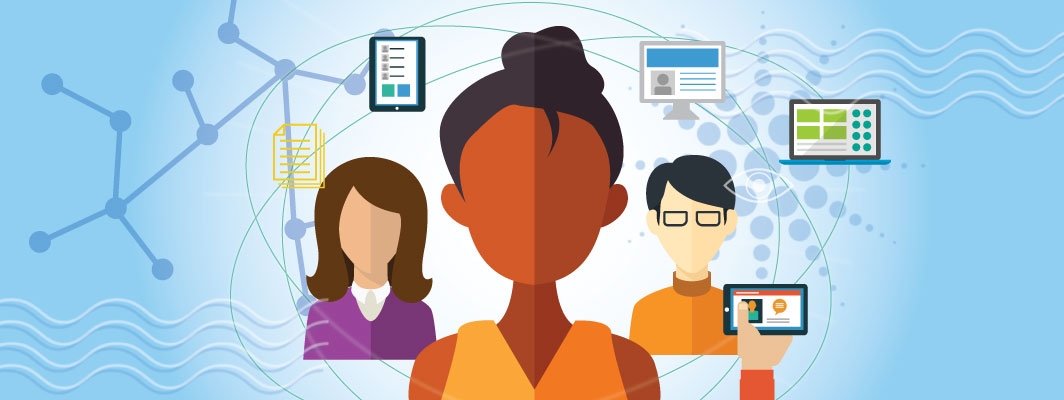
August 13, 2018 | By Karen Cator and Aubrey Francisco
Last summer, we began an exciting pilot project to understand whether instructional technology coaching ultimately leads to closing the digital use divide in the classroom. While in some cases, technology is used in powerful ways to support students in developing critical thinking and collaboration skills, and to develop a sense of agency, in other situations it is used in things like drill and practice exercises, test prep, and reading online content.
To address this divide, it is necessary yet insufficient to ensure all schools have access to the internet and devices. We must also support educators with the knowledge and skills to use technology in powerful ways to improve student engagement, critical thinking, problems solving, collaboration, and more.
Research consistently shows teacher quality is one of the most important school-based factors in student achievement1. Additionally, a growing body of evidence suggests teacher coaching can improve teacher practice and student achievement2. Therefore, over the past year, we set out to explore the potential of classroom coaching to effectively foster more powerful use of technology.
The Dynamic Learning Project is part of Google’s broader commitment to helping underserved communities benefit from the power of technology. With generous support from Google, Digital Promise launched the Dynamic Learning Project to increase educational equity and powerful use of technology through instructional coaching. Working with 50 schools in 20 school districts across five states—Alabama, California, Pennsylvania, South Carolina, and Texas—we gave each school a grant to support an onsite, full-time instructional technology coach for one year. Throughout the year, Dynamic Learning Project coaches provided individualized support to teachers to help them select, tackle, and then reflect upon solving a classroom challenge(s). The school-based coaches, as well as each school’s principal, received sustained mentoring and ongoing professional development throughout the year.
Throughout the project, we gathered data through surveys and conducted in-depth case studies to better understand the conditions necessary for classroom coaching to effectively foster more powerful use of technology for teaching and learning.
Our findings from this pilot year show that district leaders, teachers, principals, and coaches overwhelmingly believe instructional technology coaching provides an engaging and impactful professional development experience. One Dynamic Learning Project coach noted, “In my years at [my school], I’ve never seen any ‘initiative’ or ‘project’ so wholly embraced by such a large (and diverse) group of the faculty.”
Additionally, our data shows that after one year of working with their Dynamic Learning Project coach, teachers are using technology more frequently and in more powerful ways—both to support what they are teaching as well as how they are teaching it. At the end of the year, more than 80 percent of Dynamic Learning Project teachers agreed that they have the ability to use technology in powerful ways to develop student agency and collaboration, creativity, communication, and critical thinking skills.
In this pilot year, we also identified the core attributes of an effective coaching program—it’s a partnership, and it is personalized, non-evaluative, voluntary, school-based, and sustained. One Dynamic Learning Project teacher expanded on the value of the personalized nature of coaching: “If you do a one-sized model for all the teachers, that’s not going to necessarily address their strengths or weaknesses. The one-on-one aspect is, I think, the most important part; you can address each teacher individually based on their strengths and their areas of growth.”
Further, we learned more about the key qualities of an effective coach—someone who is a relationship builder, a tech believer, a strong communicator, and who has previous teaching experience, preferably in the school in which they are coaching. As one Dynamic Learning Project principal shared, “A good coach is… innovative not only in her instructional strategies and what she can find and bring to teachers, but in the way she approaches teachers or staff members and builds relationships and finds the way in, even when the door might not be open.”
Overall, our findings from the pilot year of the Dynamic Learning Project suggest that instructional technology coaching is a promising approach to help close the digital use divide, and ultimately improve student learning.
To learn more about our findings, read the full report and download our infographic.
By Elliott Barnes and Sara Mungall